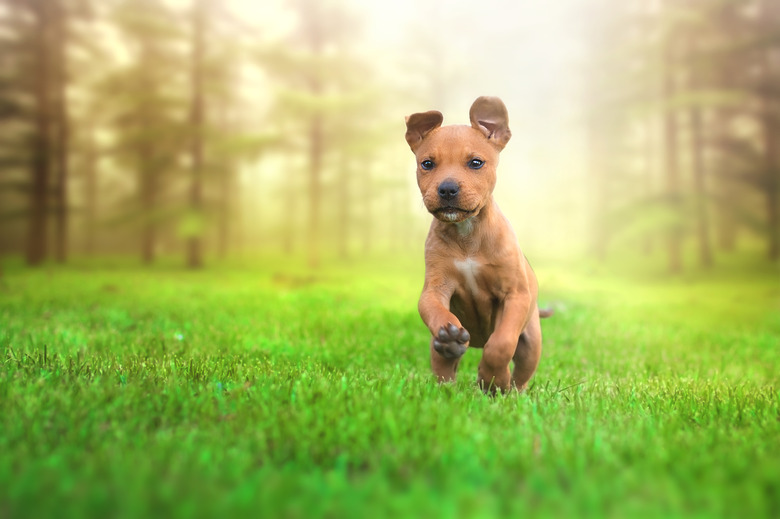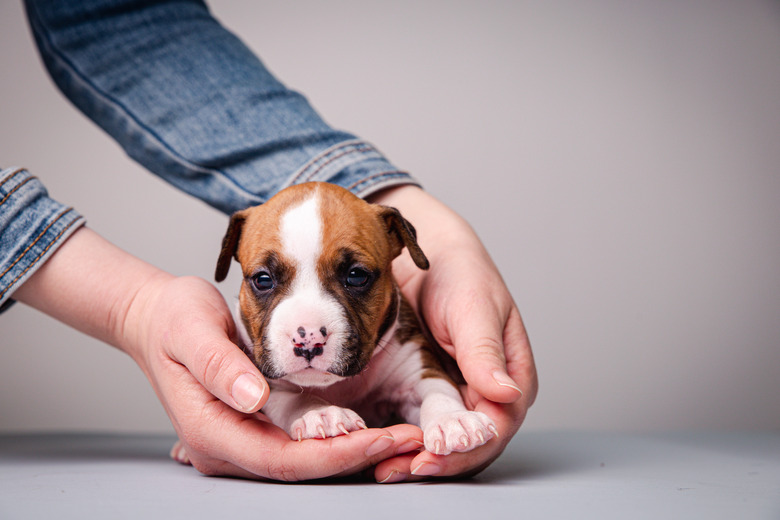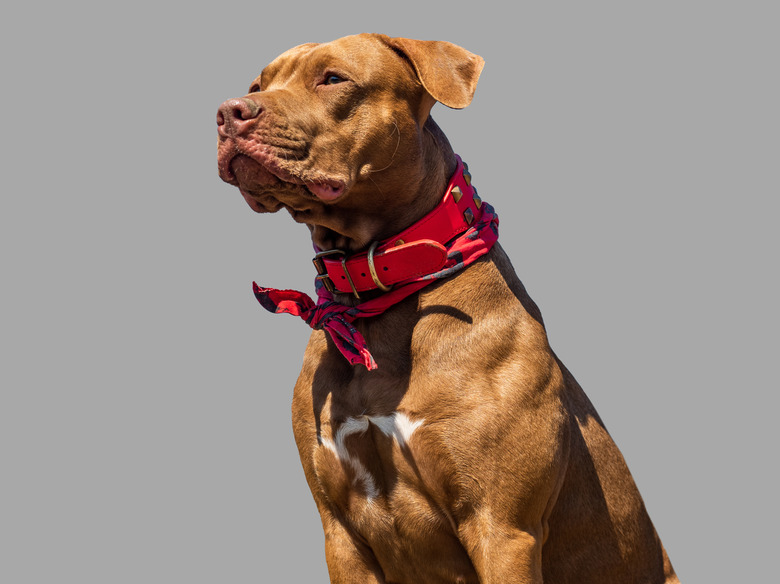What To Feed A Pit Bull Puppy
Pit bulls are friendly, strong, and athletic. They are identified as one of at least four different dog breeds and many cross breeds, including the American pit bull terrier, American bully, and the American Staffordshire terrier.
Most pit bull puppies are energetic and have high exercise requirements, so providing them with a suitable diet is essential. Understanding the dietary needs of your pitbull pup and developmental life stages will help to ensure optimal growth.
The first 6 weeks of a pit bull puppy's life
The first 6 weeks of a pit bull puppy's life
From birth, pit bull puppies will nurse about every two hours until their second week, when they should feed every three to four hours. The puppies will get colostrum and vital antibodies from their mother's milk during the first few days.
A female dog's milk is high in protein, fat, and sugar, and as long as she is healthy and able to feed them, this is their best source of nutrients for healthy bone and muscle development. Before they are born, increasing the amount and quality of pet food given to the mother is necessary. If she is fed a high-quality protein from a premium diet, she should not require additional supplements such as calcium. You can identify the best dog foods by looking for those that meet the nutritional standards of the Association of American Feed Control Officials.
If a pit bull mother cannot provide her puppies with sufficient sustenance or she is absent, you will need to start a regular feeding schedule using properly formulated puppy replacement milk. If hand rearing or supplemental feeding is necessary, it is advisable to seek advice from a veterinarian or canine nutritionist.
Never feed your pit bull puppy cows' milk or any other type of milk substitute, as these will not provide the correct nutritional balance, and the higher lactose content may cause tummy upsets, which can rapidly lead to dehydration.
By 3 to 4 weeks of age, when the puppies' teeth grow sharp, the mother will begin the weaning process, and puppies can be introduced to replacement puppy formula fed on plates or in shallow bowls. Gradually add softened, premium puppy kibble to the milk, reducing the milk over time to get the puppies comfortable eating solids. This process of introducing a new food will be complete by 5 to 6 weeks of age, although some very attentive mothers may still produce milk and allow the puppies to feed until they are 7 or 8 weeks. Puppies should be fed approximately six times a day during the weaning process.
Feeding a pit bull puppy from 6 to 12 weeks
Feeding a pit bull puppy from 6 to 12 weeks
Once your pit bull puppies are weaned and eating premium puppy food suitable for large-breed puppies, they should be fed four times a day. Soften the dry dog food until they are 9 weeks old. Ideally, breeders should keep puppies with their mother and littermates until they are over 10 weeks. During this time, they will learn critical social skills, one of which is to feel safe while eating.
Feeding puppies from separate bowls reduces the risk of food-related conflicts between littermates and allows you to monitor their feeding habits in case puppies are not eating enough.
Feeding your pit bull puppy from 3 months to 1 year
Feeding your pit bull puppy from 3 months to 1 year
At 3 months, you can reduce the number of meals of high-quality puppy food to three daily; by 6 months, your puppy will be ready for a reduction to two meals daily. It is crucial to keep an eye on your puppies' weight. While chubby puppies can be adorable, that extra weight can cause bone growth disorders. Your puppies' optimal growth depends on your careful diet management.
One other thing to think about regarding pit bull health is their size and spaying and neutering considerations.The American Animal Hospital Association (AAHA) recommends waiting to spay/neuter dogs who will grow to weight more than 45 pounds until after growth stops, which is around 9 to 15 months, depending on the dog. Spaying or neutering too early can lead to an increase in hip dysplasia risk, but there is still controversy about how much of an increase occurs and which breeds are affected.
Pit bull puppy feeding considerations and health
Pit bull puppy feeding considerations and health
Deep-chested dogs, such as pit bulls, are prone to bloat, progressing rapidly to gastric dilatation and volvulus (GDV) and becoming life-threatening. Allowing your puppy to bolt their food or feeding them too soon before or after exercise can cause bloat.
You can purchase specially designed bowls designed to slow down their eating. Other ways to slow down eating include food enrichment toys and using some of their daily food as treats during basic training. Adult dogs benefit from two smaller meals daily instead of one large meal.
Pit bulls can also be genetically predisposed to hip dysplasia, and allowing them to suffer from obesity as they grow can lead to an early onset of the disorder. This is why it is important to focus on optimal and not maximum growth. To effectively monitor your puppy's weight, it is recommended to use the body condition score from 1 to 5, with 5 being obese and 1 being too thin. You can find body condition score charts online.
The bottom line
The bottom line
A pit bull puppy needs a high-quality food and careful dietary management that meets all of thier nutritional needs to ensure optimal growth. It is essential that pitbull owners provide a balanced diet with sufficient nutrients from birth to adulthood and that they are kept at the correct weight. Using the body condition score is an excellent way to monitor their healthy growth and reduce the risks of growth and joint disorders.


